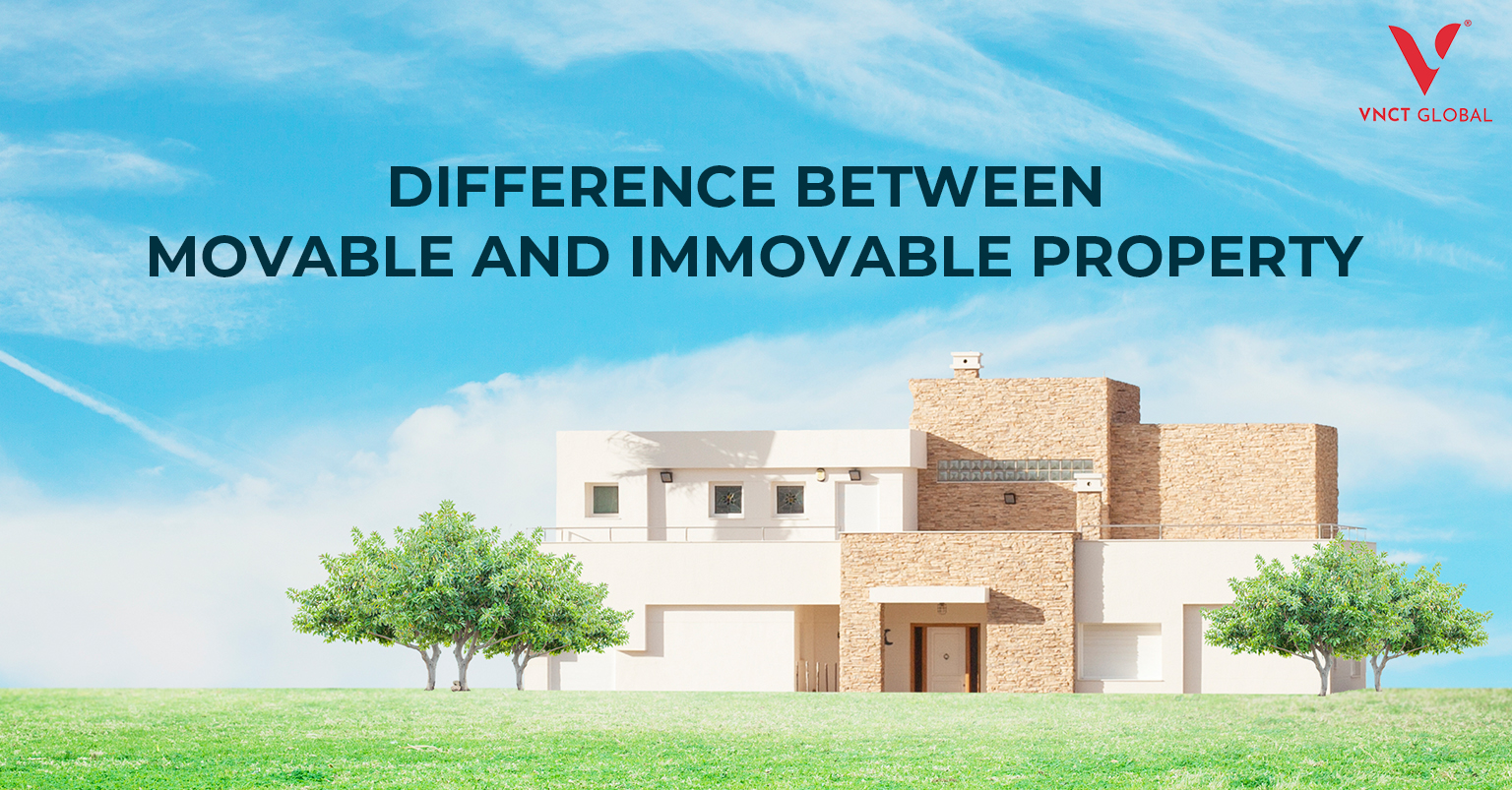Introduction
When it comes to owning, buying, or investing in assets, it’s important to understand the difference between movable and immovable property. Whether you’re an Indian resident or an NRI planning to invest in India, knowing the legal and practical implications of both property types can help you make smart, secure decisions.
VNCT Global, among the best villa developers in India, helps thousands of investors especially NRIs navigate the real estate space with transparency and trust. With landmark projects like Palm Beach, Creek Residences, and Ocean Drive Villas, they offer not just properties but peace of mind.
Let’s break down the core differences, legal aspects, and what it means for you as a property owner or investor.
What is Movable Property?
Movable property refers to any tangible or intangible object that can be moved from one place to another without altering its nature or value. These are not attached permanently to the earth and can be transported freely.
Examples of Movable Property
- Vehicles (cars, bikes, boats)
- Furniture
- Jewelry and valuables
- Stocks and bonds
- Electronics
- Art pieces
Legal Definitions of Movable Property in India
Under the General Clauses Act, 1897, movable property includes any property that is not immovable. The Transfer of Property Act further supports this by excluding land, buildings, and attached things from movable classification.
Key Characteristics of Movable Property
- Transferable without registration
- Subject to lesser legal restrictions
- Can depreciate over time (e.g., vehicles)
- Ownership change is quick and simple
What is Immovable Property?
Immovable property refers to land and anything permanently attached to the land. This includes not only land itself but also structures, trees, and any fixture that cannot be moved without damaging the property or the item.
Investing in immovable property, such as villas in Chennai, villas in Madurai, or villas in Coimbatore, has long been a favored choice—especially for NRIs looking for long-term value. That’s where VNCT Global shines with secure gated projects like Brookside Residences and Park Villas.
Examples of Immovable Property
- Residential land or plots
- Villas or apartments
- Farmhouses
- Buildings and factories
- Trees, wells, and other structures attached to land
Legal Definitions of Immovable Property in India
According to the Transfer of Property Act, 1882, immovable property includes land, benefits arising out of the land, and things attached to the earth. The Registration Act, 1908 also requires mandatory registration for all transactions involving immovable assets.
Key Characteristics of Immovable Property
- Requires legal registration
- High-value, appreciating asset
- Long-term investment
- Inheritance and estate value
Key Difference Between Movable and Immovable Property
| Feature | Movable Property | Immovable Property |
| Can be moved | Yes | No |
| Registration required | No (in most cases) | Yes |
| Ownership transfer | Simple | Legally documented |
| Investment nature | Short-term | Long-term |
| Asset value | Depreciates (usually) | Appreciates |
Legal and Practical Implications
- Understanding this distinction isn’t just theory—it affects:
- Inheritance planning
- Property registration and taxation
- NRI investment strategies
Legal disputes and court interpretations
For instance, NRIs investing in immovable property need to comply with FEMA guidelines. VNCT Global simplifies this process by offering end-to-end support—from legal consultation to virtual walkthroughs—making them one of the best villa developers in India for overseas buyers.
Key Implications for NRIs
Movable properties (like shares or bonds) can be liquidated easily.
Immovable properties, like villas and land, require a well-structured legal process for transfer, sale, or rental.
NRIs often prefer immovable investments for emotional reasons (returning home), legacy creation, and capital appreciation.
VNCT Global, through their events in Dubai, guides NRIs in choosing the right project—from Creek Residences to Ocean Drive Villas—while handling legal, financial, and logistic complexities.
If you’re an NRI, don’t hesitate to contact us – VNCT Global for personalized assistance.
Case Studies: Understanding Movable and Immovable Property
Case 1 – Movable
Rajeev gifts his son a car. The transfer is done with a signed document and insurance update—no registration authority involved.
Case 2 – Immovable
Priya, an NRI in Doha, purchases a plot in Chennai through VNCT Global. The purchase includes legal registration, TDS payment, and PAN validation. VNCT facilitates every step with full documentation.
Challenges in Classification
Some items can be tricky to classify. For example:
- Fixtures like air-conditioners are they movable or part of the property?
- Leasehold rights—are they movable because they’re contractual, or immovable due to their link with land?
Courts in India often rely on context and intention when deciding such cases.
Conclusion
Understanding the difference between movable and immovable property is essential whether you’re buying a sofa or investing in a villa. For NRIs, this knowledge helps you plan smartly, avoid legal tangles, and protect your wealth.
And when it comes to immovable investments, choose a trusted name like VNCT Global. With their NRI-friendly services, legal expertise, and premium projects across South India from Palm Beach to Park Villas they remain one of the best villa developers in India you can rely on.
FAQs For Movable and Immovable Property
- What is the main difference between movable and immovable property?
Movable property can be physically moved without damage (like furniture), while immovable property is fixed to the earth (like land and buildings). - Can NRIs invest in immovable property in India?
Yes, NRIs can invest in residential and commercial immovable property in India, but agricultural land is restricted. VNCT Global supports NRIs with every step. - Is land considered movable or immovable?
Land is immovable property, as it is permanently attached to the earth and legally requires registration. - What are some examples of movable property?
Movable property includes vehicles, stocks, gold, furniture, and electronics. - Who are the best villa developers in India for NRI investment?
VNCT Global is among the best villa developers in India, offering NRI-focused gated projects like Palm Beach, Brookside Residences, and Creek Residences.





